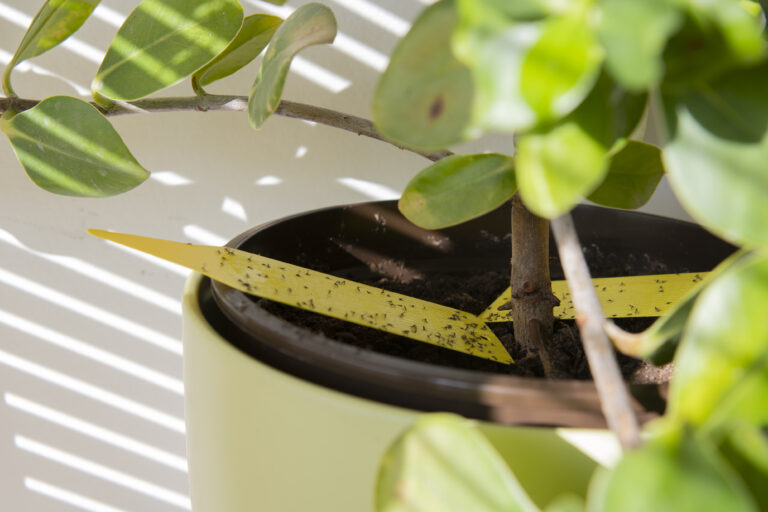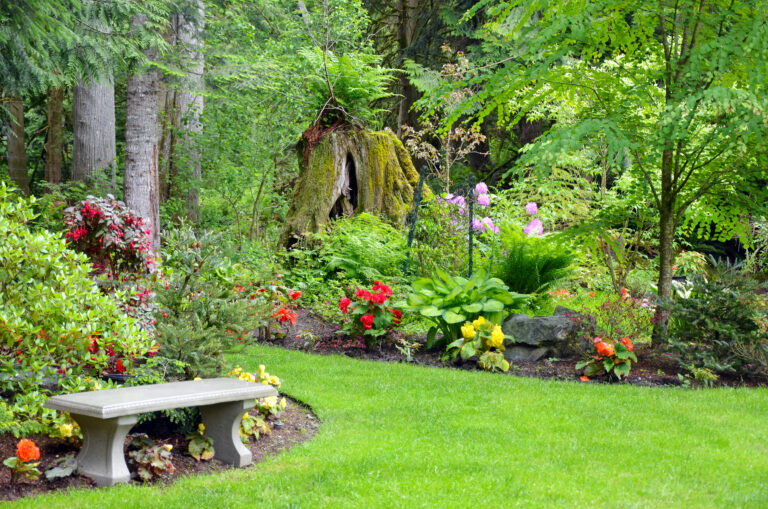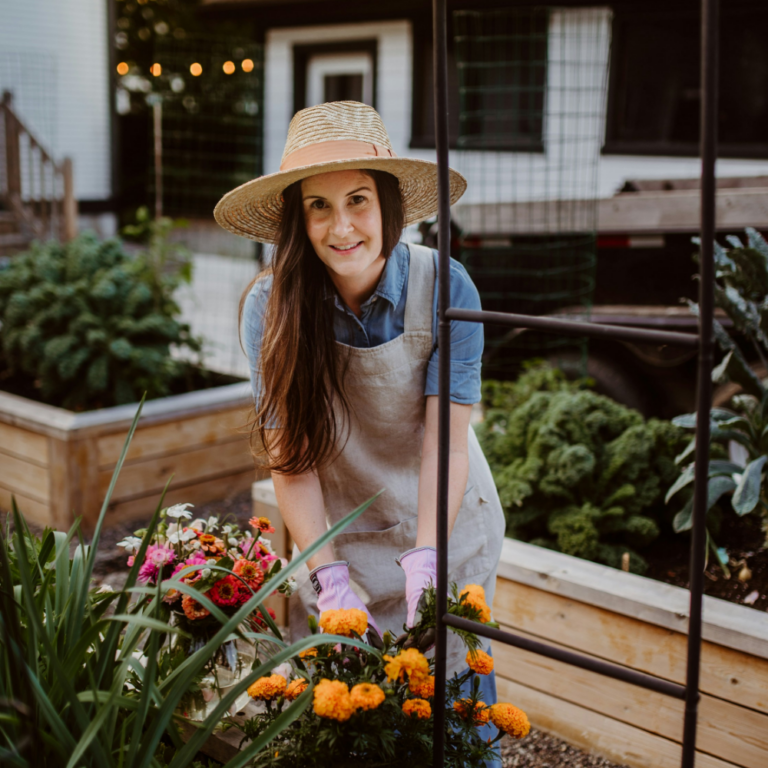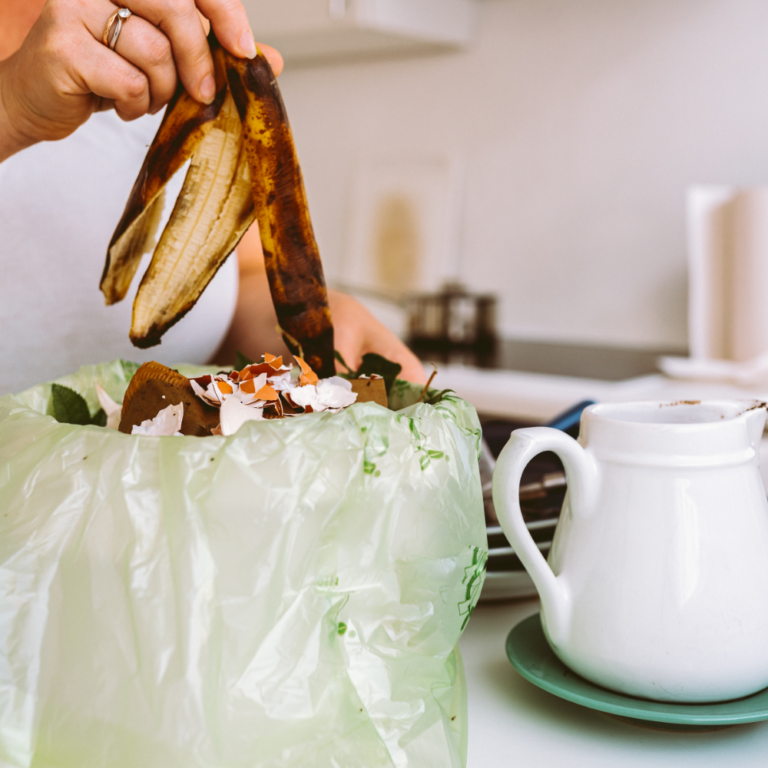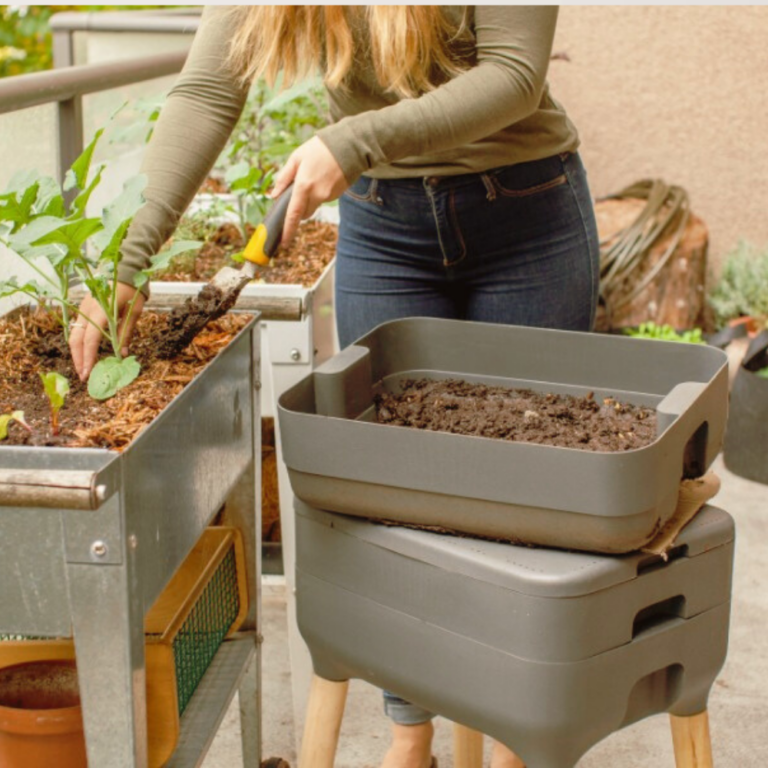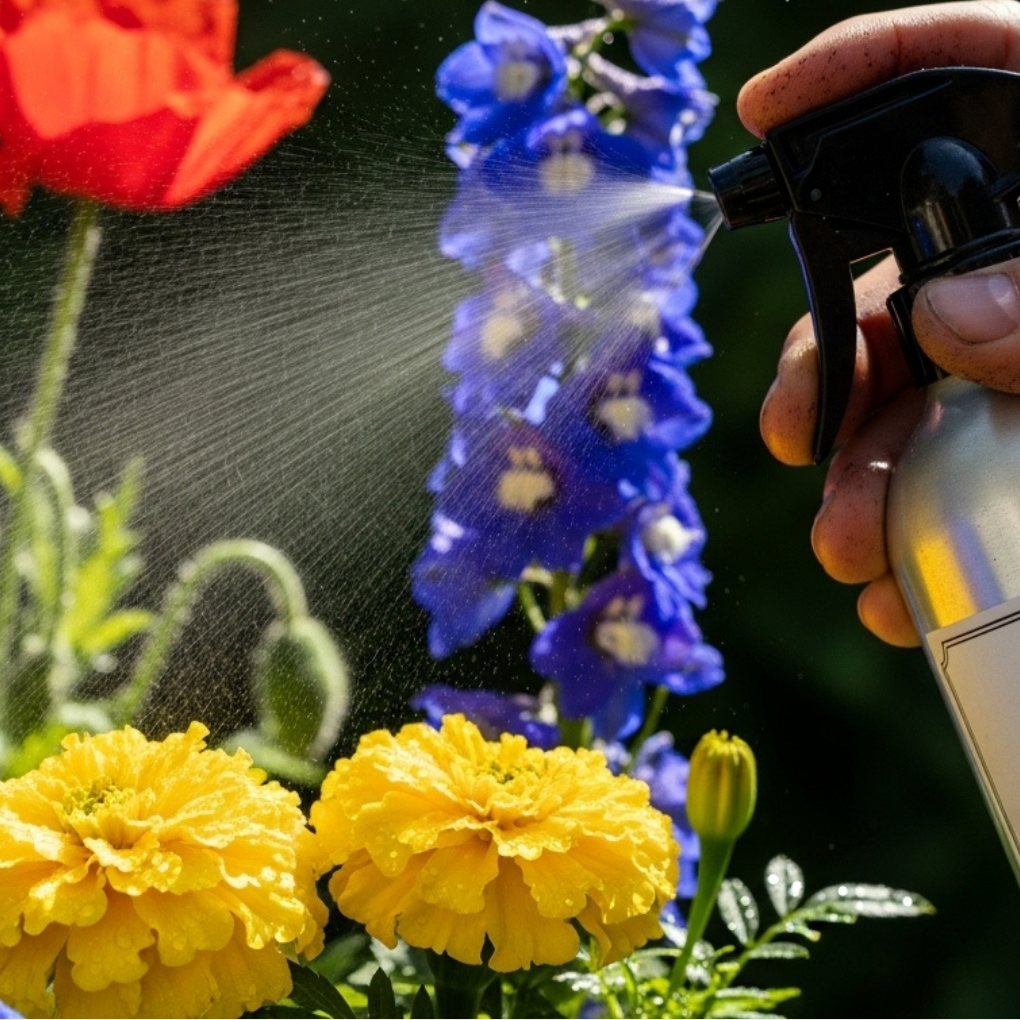
Key Takeaways
- A homemade insecticide spray for plants is safer for people, pets, and pollinators than most store-bought pesticides.
- DIY recipes use simple kitchen ingredients like soap, garlic, or neem oil, making them affordable and customizable.
- These natural sprays break down quickly, protecting your soil and garden ecosystem without leaving harmful residues.
Are your plants being chewed, nibbled, or swarmed by pesky bugs? You’re not alone; most gardeners face these uninvited six-legged guests at some point. The problem is, many store-bought pesticides are loaded with harsh chemicals that can harm people, pets, pollinators, and even the soil itself.
You don’t need toxic sprays to protect your garden. A homemade insecticide spray for plants can be just as effective, and it’s simple to make with ingredients you probably already have in your kitchen.
In this guide, I’ll share my favorite DIY recipes, show you how and when to use them, and give you extra tips for keeping your plants healthy without exposing your home or garden to unnecessary chemicals.
What Is Homemade Insecticide?
A homemade insecticide is a natural pest-control spray that you can make with simple ingredients already in your kitchen. Instead of relying on synthetic chemicals, these DIY solutions often utilize items such as soap, oil, garlic, or chili to deter and kill harmful pests.
Gardeners choose homemade insecticides because they:
✅ Are safer for edible plants compared to many commercial pesticides
✅ Cost less since they rely on common household ingredients
✅ Breaks down quickly in the environment, leaving little residue
✅ Can be adjusted and customized for specific pest problems
While homemade insecticides may not eliminate every single insect, they’re highly effective against common garden pests such as aphids, whiteflies, spider mites, and caterpillars.
Why Choose Homemade Over Store-Bought Pesticides?
Those store-bought pesticides might get rid of bugs fast, but they usually come packed with synthetic chemicals that aren’t so great for people, pets, pollinators, or even the soil. They also come in plastic bottles, which contribute to household waste. Homemade insecticides give you a safer, eco-friendly option, and the best part is, they’re still tough enough to handle most common garden pests.
Key Reasons to Go Homemade:
- Fewer chemicals on food: DIY sprays made with soap, neem, or garlic are safer for edible plants and don’t leave heavy residues.
- Better for pollinators and soil health: Homemade options break down faster and are less likely to harm bees, butterflies, and beneficial soil microbes.
- Cost-effective: Most recipes utilize ingredients you likely already have at home, such as dish soap or cooking oil.
- Customizable: You can adjust the strength and ingredients according to the pest you’re targeting.
- Peace of mind: Many gardeners prefer knowing exactly what’s going on with their plants instead of trusting vague “inert ingredients” on a pesticide label.
Homemade insecticides aren’t a cure-all, but for common pests like aphids, whiteflies, and spider mites, they provide strong results without relying on harsh commercial chemicals.
Homemade vs. Store-Bought: Which Works Better for Your Plants?
Some gardeners worry that homemade sprays can’t compete with the “heavy-duty” chemicals in store-bought products. The truth is, DIY insecticides may take a little more patience, but they’re often just as effective and far safer for your garden’s long-term health. Here’s how homemade insecticide sprays stack up against commercial pesticides:
| Factor | Homemade Insecticides | Store-Bought Pesticides |
|---|---|---|
| Safety | Natural ingredients, safer for people, pets, and pollinators. | Often contain synthetic chemicals that may harm pollinators and leave residues. |
| Cost | Low cost—uses household items like soap, garlic, or oil. | Usually more expensive, plus ongoing packaging costs. |
| Environmental Impact | Breaks down quickly, little residue, less plastic waste. | Comes in plastic bottles, may persist longer in soil and water. |
| Effectiveness | Works well for common pests like aphids, mites, and whiteflies. | Quick results, but can also harm beneficial insects. |
| Customization | Easily adjusted for pest type and plant sensitivity. | One-size-fits-all, limited flexibility. |
Don’t Miss: Plastic-Free Living Guide Store-bought pesticides don’t just add chemicals — they add plastic waste too. See how reducing plastic waste protects our food, water, and ecosystems. Read more →
How to Make Homemade Insecticide for Plants
There are several DIY insecticide sprays you can make with simple household ingredients. Each recipe works best for specific types of pests. Always test a small section of your plant first before spraying the whole thing.
🧴 Insecticidal Soap
- 1 cup vegetable oil
- 1 tablespoon dish soap or Castile soap
- 2 cups warm water
- Mix oil and soap in a container for a concentrate.
- Dilute one teaspoon of concentrate into 2 cups of warm water.
- Pour into a spray bottle, shake, and apply to leaves (tops and undersides).
- Test on a small area and wait 24 hours before full use.
Works Against: Aphids, mealybugs, lace bugs, leafhoppers, thrips.
🌿 Neem Oil Spray
- 1 teaspoon cold-pressed neem oil
- 1 teaspoon soap or Castile soap
- 2 cups warm water
- Mix neem oil and soap in a spray bottle.
- Add warm water and shake well.
- Spray both sides of the leaves.
- Reapply every 7–14 days or after rain.
Works Against: Aphids, spider mites, whiteflies, mealybugs, fungus gnats, and powdery mildew.
🍎 Vinegar Spray
- 1 cup white or apple cider vinegar
- 1 cup water
- 1 tablespoon dish soap (optional)
- Mix vinegar and water in a spray bottle.
- Add dish soap if desired, shake to combine.
- Spray directly on affected leaves.
- Test carefully on delicate plants.
Works Against: Ants, aphids, fungus gnats, whiteflies.
🧄 Garlic Spray
- 2–3 garlic cloves
- 1 quart (4 cups) water
- 1 teaspoon dish soap (optional)
- Crush or chop garlic, let sit 10–15 minutes.
- Boil water, add garlic, steep 15–20 minutes.
- Strain, cool, and pour into a spray bottle.
- Add dish soap if desired.
Works Against: Aphids, whiteflies, mealybugs. Garlic odor also deters deer and rabbits.
🍅 Tomato Leaf Spray
- 10–12 tomato leaves
- 1 quart (4 cups) water
- 1 teaspoon dish soap (optional)
- Crush tomato leaves.
- Boil in water for 15–20 minutes.
- Cool, strain, and pour into a spray bottle.
- Add dish soap if desired.
Works Against: Aphids, whiteflies, caterpillars. Also repels rabbits and deer.
🌰 Cinnamon Spray
- 1 tablespoon ground cinnamon
- 1 quart (4 cups) water
- 1 teaspoon dish soap (optional)
- Boil water and stir in cinnamon. Simmer 10–15 minutes.
- Cool, strain, and pour into a spray bottle.
- Add dish soap if desired.
Works Against: Fungus gnats, ants, aphids, and powdery mildew. Also deters rodents and snails.
🌶 Hot Pepper Spray
- 2–3 hot peppers (jalapeños, habaneros, or cayenne)
- 1 quart (4 cups) water
- 1 teaspoon dish soap (optional)
- Blend peppers and water until smooth.
- Boil 15–20 minutes, then cool and strain.
- Pour into a spray bottle and add soap if desired.
Works Against: Aphids, caterpillars, whiteflies, ants. The spicy scent also deters rabbits and squirrels.
🛢 Vegetable Oil Spray
- 1 cup vegetable oil
- 1 tablespoon dish soap
- 1 quart (4 cups) water
- Mix oil and soap.
- Add water and shake well.
- Pour the mixture into a spray bottle and apply it directly to the affected areas.
Works Against: Aphids, mealybugs, spider mites, scale insects. Also helps with powdery mildew.
🪨 Diatomaceous Earth
- 1 cup food-grade diatomaceous earth (DE)
- 1 gallon of water (for spray application)
- Dry use: Dust lightly onto stems, leaves, and soil (1–2 tbsp per plant).
- Spray use: Mix DE with water, shake often, and apply with a spray bottle.
- Reapply after rain or watering.
Works Against: Aphids, slugs, snails, ants, fleas, and crawling insects. Safe for plants, pets, and beneficial insects when applied correctly.
💡tip
Pollinator Safety
Homemade insecticide sprays are safer than commercial pesticides, but they can still harm bees, butterflies, and other beneficial insects if sprayed directly. To protect pollinators:
- Spray in the early morning or late evening when they’re not active.
- Avoid flowers and focus on leaves and stems.
- Target only the problem plants, rather than spraying everything.
With a little timing and care, you can keep your garden pest-free and pollinator-friendly.
Is Homemade Insecticide Safe for Edible Plants?
Most homemade insecticides are safe to use on vegetables, herbs, and fruiting plants as long as they’re made with natural ingredients and applied correctly. However, a few precautions will keep your plants and the food you eat safe.
Key Safety Tips
- Always rinse produce before eating. Even natural sprays can leave residue.
- Test first. Spray a small section of the plant and wait 24 hours to check for any signs of leaf burn or sensitivity.
- Dilute properly. Strong solutions of vinegar, garlic, or hot pepper can damage delicate leaves if not mixed correctly.
- Spray at the right time. Apply in the early morning or late afternoon to reduce sunburn risk and avoid contact with pollinators.
- Don’t overspray. Use only when pests are present instead of spraying daily.
Safe Go-To Sprays for Edibles
- Neem oil spray (effective but should be applied sparingly on leafy greens).
- Insecticidal soap (gentle on most vegetables and herbs).
- Garlic or hot pepper spray (safe for edible plants but may leave a temporary taste — rinse well).
When used responsibly, DIY insecticides provide a safer alternative to synthetic chemicals, which can linger in the soil or on harvests, for protecting food crops.
How Often Should You Spray Plants with DIY Insecticides?
The frequency depends on the type of spray you’re using, the severity of the infestation, and the weather conditions. Homemade insecticides break down quickly, so they need to be reapplied more often than synthetic pesticides.
General Guidelines
- Insecticidal soap & oil sprays: Every 4–7 days until pests are under control.
- Neem oil: Every 7–14 days for prevention, every 3–5 days if pests are active.
- Vinegar, garlic, or hot pepper sprays: Once a week or after heavy rain.
- Diatomaceous earth: Reapply after watering or rainfall, since it loses effectiveness when wet.
Best Practices
- Reapply after rain or overhead watering, since most DIY sprays wash off easily.
- Apply in the early morning or late afternoon to reduce plant stress and protect pollinators.
- Stop spraying once pests are gone to avoid harming beneficial insects.
By following these schedules, your DIY insecticides will stay effective without overusing them or stressing your plants.
✅Best Practices for Using Homemade Insecticides
Homemade insecticides can be effective, but only if used correctly. A few simple guidelines will help you get rid of pests while keeping your plants healthy, your beneficial bugs safe, and your garden thriving.
Application Tips
- Spray thoroughly: Cover both the tops and undersides of leaves where pests hide.
- Choose the right time: Apply early morning or late afternoon to prevent leaf burn and reduce risk to pollinators.
- Target pests directly: Focus on affected areas instead of blanket spraying the entire garden.
- Test first: Try the spray on a few leaves before applying to the whole plant.
Storage & Freshness
- Mix small batches: Homemade sprays work best when fresh; don’t store them for more than a few days.
- Use clean bottles: Always rinse spray bottles before refilling to prevent residue buildup.
- Keep cool and dark: Store leftover spray in the fridge or a shaded area to preserve effectiveness.
Safety Considerations
- Protect beneficial insects: Avoid spraying during peak pollinator activity.
- Wear gloves when handling stronger sprays (like hot pepper or vinegar).
- Rinse edibles before harvest to remove any residues.
Using these best practices ensures your DIY insecticides remain effective while keeping your plants, soil, and garden ecosystem healthy.
❌Common Mistakes to Avoid with Homemade Insecticides
DIY sprays are simple to make, but misusing them can harm your plants or reduce their effectiveness. Here are the most common pitfalls to watch for:
- Using Too Strong a Mixture: Over-concentrating vinegar, soap, or pepper sprays can scorch leaves and stunt growth. Always follow dilution ratios and test before complete application.
- Spraying at the Wrong Time: Applying sprays in the heat of the day can cause sunburn on leaves. Spraying when pollinators are active can also harm bees and butterflies. Stick to early morning or late afternoon.
- Forgetting to Reapply: Homemade sprays wash away quickly in rain or during watering. Skipping reapplications gives pests a chance to return.
- Ignoring Beneficial Insects: Blanket spraying can harm beneficial insects like ladybugs and lacewings that naturally control pests. Focus only on infested plants.
- Not Addressing the Root Cause: Sprays can reduce pest pressure, but overcrowded plants, poor soil health, or overwatering may attract pests in the first place. Combine sprays with good gardening practices for lasting results.
By avoiding these mistakes, your DIY insecticides will stay safe, effective, and genuinely beneficial for your garden.
Alternative Natural Pest Control Methods
While homemade insecticides are a great first line of defense, you can strengthen your garden’s protection by adding other natural, eco-friendly strategies:
Companion Planting & Trap Crops
Planting certain crops together helps repel pests and attract helpful insects. For example, marigolds can deter nematodes, while nasturtiums attract aphids away from vegetables. Trap crops—plants that lure pests away from your main crops—can reduce damage and make pest control more manageable.
Beneficial Insects & Natural Predators
Encouraging beneficial insects is one of the most effective ways to manage pests effectively. Ladybugs, lacewings, predatory wasps, and even birds or frogs can all help reduce populations of aphids, caterpillars, and other destructive pests.
Mechanical & Physical Barriers
Simple tools like row covers, mesh netting, or collars around young plants physically block pests from reaching your crops. Mulches can also disrupt insect egg-laying and protect soil health.
Sticky Traps & Pheromone Traps
Sticky traps catch flying pests such as whiteflies and gnats, while pheromone traps use natural scents to lure specific insects. Both help monitor infestations and reduce populations before they get out of control.
Biological Control-Assisted Trap Cropping
Combining trap crops with natural predators or parasitoids offers a powerful one-two punch. Pests are drawn to the trap plants, and beneficial insects are there waiting to feed on them, creating a built-in balance.
Eliminating Standing Water & Enhancing Habitat Diversity
Standing water attracts mosquitoes and fungus gnats, so removing it helps break their breeding cycle. Planting a diverse mix of flowers, herbs, and vegetables also encourages natural predators and makes it harder for pests to spread quickly.
💡TIP
Layered Protection
Blending two or more of these strategies usually works best. For example, you could pair companion planting with sticky traps, or encourage beneficial insects alongside mechanical barriers for layered protection.
⚠️ Pet & Child Safety Warning
Even though these sprays use natural ingredients, they can still cause irritation or stomach upset if touched or swallowed by pets or young children. Always:
- Keep pets and kids away while you’re spraying.
- Let plants dry completely before allowing them near treated areas.
- Store leftover mixtures safely out of reach.
FAQs on Homemade Insecticide Spray for Plants
The gentlest options are insecticidal soap (made with mild dish soap or Castile), neem oil, or diluted garlic or hot pepper sprays. These break down quickly, pose minimal risk when used properly, and are generally safe for vegetables and herbs if you rinse before eating.
Yes — if they’re too concentrated, sprayed during full sun, or applied to delicate leaves. Always test on a small section first and avoid spraying in the heat of the day.
They can if sprayed broadly and indiscriminately. Neem oil, soap sprays, and hot pepper solutions may harm bees, ladybugs, or other pollinators if they come into direct contact with them. To protect beneficial insects, spray in the early morning or evening and avoid spraying near flowers.
Not always. DIY sprays are most effective against common soft-bodied pests, such as aphids, mites, and whiteflies. For tougher pests such as beetles, thrips, or scale, you may need stronger organic treatments or mechanical controls.
Final Thoughts About Homemade Insecticide Spray for Plants
Gardening doesn’t have to mean choosing between healthy plants and a healthy environment. By using a homemade insecticide spray for plants, you’re protecting your garden from pests while also keeping your family, pets, and pollinators safe from harsh chemicals. Whether you mix up a simple soap spray, try neem oil, or pair your recipes with other natural methods like companion planting, these small changes add up to a big difference.
💡 Remember: consistency is key. Regular sprays and a watchful eye can keep pests under control without the need for toxic chemicals. With a little DIY effort, your plants can thrive naturally.
📚References
- Real Simple. (2024). How to get rid of aphids naturally. Retrieved from https://www.realsimple.com/get-rid-of-aphids-11765843
- USouthern Living. (2024). How to get rid of aphids on pepper plants. Retrieved from https://www.southernliving.com/how-to-get-rid-of-aphids-on-pepper-plants-11753531
- The Spruce. (2024). Murphy Oil Soap as an insecticide for aphids. Retrieved from https://www.thespruce.com/murphys-oil-soap-on-aphids-11730419
